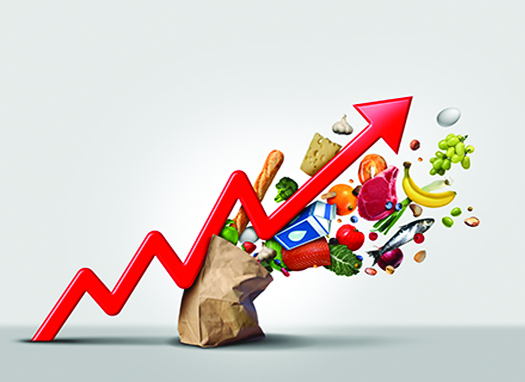Business Report :
Bangladesh Bank has taken serious measures to tame inflation by repeatedly raising the key policy interest rate to restrict the flow of money in circulation outside banks, and attract more people to save more money in banks.
As a result, the central bank on Sunday increased the policy rate by 50 basis points to 9 per cent, effective from today.
This is the third hike this year and 10th since May 2022.
The standing lending facility (SLF) rate has also been increased by 50 basis points to 10.50 per cent and standing deposit facility (SDF) rate has similarly been hiked by 50 basis points to 7.50 per cent.
The decision was made at the monetary policy committee meeting of the central bank, with all members, including Bangladesh Bank Governor Ahsan H Mansur, in attendance.
As a result, the interest rate of the money that the banks borrow from the central bank will increase.
Additionally, there will be a rise in the interest rate on bank loans and deposits.
Bankers said that as a result of the rate increase, the interest rate for any commercial bank facing a liquidity crisis will rise, should they need to borrow from Bangladesh Bank.
Additionally, loan interest rates for customers will also increase. Consequently, higher loan rates are expected to reduce consumer spending, which in turn should help to gradually decrease inflation.
However, the latest hike in policy rate comes at a time when private sector credit growth fell to 9.8 per cent in June as per Bangladesh Bank monetary policy for the first half of FY25.
According to Bangladesh Bank data, at the end of June 2024, money in circulation stood at Tk321,199 crore.
Just six months earlier, at the end of December last year, it was Tk277,807 crore.
In this six-month period, the amount of money outside the bank increased by Tk43,392 crore.
But inflation has become the most critical problem nowadays.
Earlier the new governor emphasized that interest rates will continue to rise until inflation starts to decrease, and the stable currency exchange rate should also aid in reducing inflation.
But inflation hit a record 13-year high of 11.66 per cent in July. Food inflation marked a record high of 14.10 per cent and non-food inflation at 9.68 per cent in July.
It was 9.72 per cent in June, while food and non-food inflation was 10.42 per cent and 9.15 per cent respectively.




